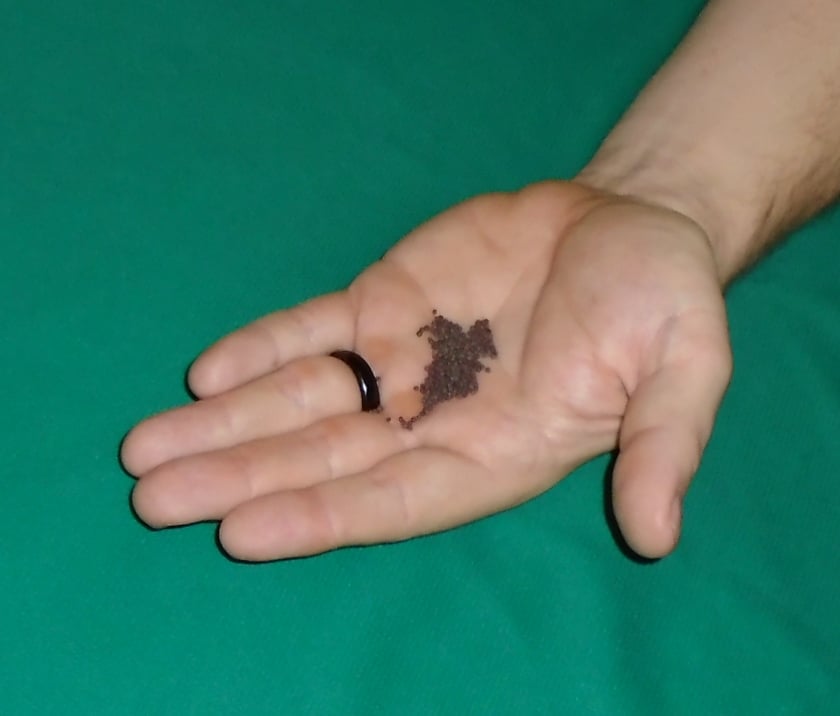Parable of the Mustard Seed (AQA GCSE Religious Studies A): Revision Note
Exam code: 8062
30 He also said, “With what can we compare the kingdom of God, or what parable will we use for it? 31 It is like a mustard seed, which, when sown upon the ground, is the smallest of all the seeds on earth; 32 yet when it is sown it grows up and becomes the greatest of all shrubs, and puts forth large branches, so that the birds of the air can make nests in its shade.” (Mark 4:30–32)
What does the parable of the mustard seed mean?
The Parable of the Mustard Seed is the third “seed” parable that Jesus told
It is a short story in which Jesus compares the Kingdom of God to a mustard seed, which is tiny: “the smallest of all the seeds on earth”
When the mustard seed is planted, the tree that grows from it is large enough for birds to nest in
The meaning of the parable is that the Kingdom of God starts very small, grows invisibly at first and then becomes a large force in the world
This proved to be true: The Kingdom of God started with Jesus and then his disciples, and then it grew and spread until Christianity became the largest religion in the world
The birds in this parable represent the Gentiles, or non-Jews
Birds were a Jewish symbol for Gentiles. Jesus was teaching his followers that the Kingdom of God would expand to include non-Jews and that his followers should look to include them when they went out to spread the message
Today, many Christians see the tree in the parable as representing the worldwide Christian Church, which can shelter everyone who needs its care and protection.

Attribution:
Mustard Seeds by Eugenio Hansen is Licensed under CC BY-SA 4.0
The Kingdom of God and Christianity today
Today, the Kingdom of God is still seen as both a present reality within the Christian religion and something that Christians pray will be established on Earth
In the Lord’s Prayer, Christians say, “Your Kingdom come, your will be done, on Earth as it is in Heaven”
This is a prayer to establish the Kingdom of God on Earth now
Christians work to establish the Kingdom of God on Earth and bring its characteristics to the world in many ways:
They may take religious vows and serve God as a dedicated priest, monk or nun
They may do voluntary work within their communities to improve the lives of others. For example, running food banks or visiting the sick
They may pursue a career that allows them to serve other people
Many Christian organisations work throughout the world to ensure people are cared for both physically and spiritually. Examples include:
Christian Aid
Catholic Agency for Overseas Development (CAFOD)
Tearfund
World Council of Churches
Christians also become involved in the work of non-religious organisations that are promoting welfare alongside people from other faiths or those of no faith. Examples include:
United Nations
CARE International
Oxfam
Amnesty International
Worked Example
In the Parable of the Mustard Seed, what do the birds nesting in the branches represent?
A. The Jewish leaders who opposed Jesus
B. The Roman soldiers who guarded Jerusalem
C. The Gentiles (non-Jews) included in the Kingdom of God
D. The disciples who first followed Jesus
[1 mark]
Answer:
Correct answer: C. The Gentiles (non-Jews) included in the Kingdom of God
Birds were a Jewish symbol for Gentiles, showing that the Kingdom of God would grow to include non-Jews.
Examiner Tips and Tricks
For each of the parables in this section, make sure you can:
Outline the parable briefly
Explain its meaning
Explain what it teaches about the Kingdom of God for believers at the time and for believers today

Unlock more, it's free!
Was this revision note helpful?
